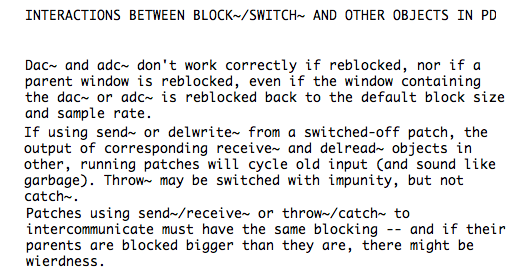I finally got an organelle (a birthday present from my wife!).
This is my first attempt at a multi-page patch that can generate multiple synchronized parts (kinda a mini workstation/groovebox).
It’s a wavetable synth with sequencer and arpeggiator, preset based drum machine, and multifx (using FX 13):
https://patchstorage.com/apollostation/
I really like the new combo patch syle, and I want to make something that would be easy to swap different synths/sequencers/effect etc.
My subpatches are organized a bit different, they take a page number as a parameter and they will automatically hook up to the knobs for that page. Then the actual stuff you want to route between modules can be hooked up directly.
I also modified the paging code so that after a page change the knobs will start responding either if it passes through the current value, or moves 10%, which I find a bit more intuitive to use.
One issue I found was that reading/writing to the usb drive would often cause buffer underruns and stuttering. I put a block at the output to mute everything before I load, which seems to get rid of the stuttering (the dropout is still noticeable though).
Right now the sequencer has some quirks, and I think I’ll eventually try to write an efficient /robust sequencer external that can things like have multiple tracks, quantization and tempo scaling (after I finish a few other patches).



 Now i got it set up for ableton link what is a nice addition for my needs. The only thing i can’t figure out is how to get the arpeggiated lines out on a different midi channel (like the arpeggio synth patch does on midi channel 2)… Do you know how to change/add that in the patch?
Now i got it set up for ableton link what is a nice addition for my needs. The only thing i can’t figure out is how to get the arpeggiated lines out on a different midi channel (like the arpeggio synth patch does on midi channel 2)… Do you know how to change/add that in the patch?